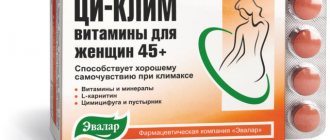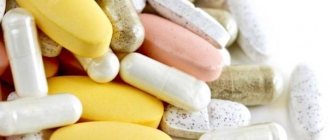Author: Slauta Alexander - sports nutrition specialist and gym trainer | more details >> Graduated from: Belarusian State Pedagogical University named after M. Tank. Specialty: social work, pedagogy. Courses on health-improving fitness and bodybuilding at the Belarusian State University of Physical Culture, at the department of health-improving physical culture. Master of Masters in arm wrestling, 1st adult category in hand-to-hand combat. Prize-winner of the Cup of the Republic of Belarus in hand-to-hand combat. Prize-winner of the Republican Dynamyade in hand-to-hand combat.
Place in the ranking of authors:
3
(become an author)
Date:
2014-10-28
Views:
38,791
Rating:
4.0
| All articles by the author >> | Medals articles >> |
Articles are loading...
Taurine is an amino acid that exists in the human body in free form. What does it mean? This means that it is not found in tissues and muscles; taurine is found in chains of amino acids (peptides). The concentration of taurine in the body is quite large and is second only to glutamine in quantity.
In the body, taurine is synthesized thanks to amino acids such as methionine and cysteine, as well as a small amount of B6 vitamins. Based on the rather complex process of taurine synthesis and the sufficient supply of initial components, it began to be added to various sports supplements.
Taurine – what is this substance, its role in the body
Taurine is a sulfonic acid or non-essential amino acid that is synthesized in the body from the amino acids cysteine and methionine.
The amino acid is involved in lipid (fat) and energy metabolism, and also improves metabolic processes in the eye tissues. For eye treatment, taurine is available in the form of eye drops. In medicine, taurine is also used for cardiovascular diseases and normalization of blood pressure for oral administration.
In the food industry, taurine is added to juices, drinks, as well as powdered infant formula and even cat food.
In the human body, the amino acid has a hepatoprotective effect, that is, it improves liver function. Taurine promotes normal metabolism in the body, improves the absorption of fats, and controls cholesterol in the blood. Taurine also promotes the regeneration of brain cells and the normal functioning of the central nervous system.
The amino acid is used for diabetes mellitus, as it reduces blood glucose levels. At the same time, taurine is able to control weight, preventing obesity.
Beneficial features
Taurine stimulates the growth of new nerve cells
The growth and development of new nerve cells is called neurogenesis. This process occurs at the stage of formation of the brain and nervous system and usually lasts up to 25 years. During this time, growth, division and maturation of brain cells occurs. That is why it is recommended to avoid drinking alcohol, smoking and taking drugs at this stage. Since this causes irreparable damage to the nervous system and brain.
After 25 years, neurogenesis slows down and the brain begins to gradually “shrink.” Neural connections are disrupted, high-level cognitive functions deteriorate: speech, learning, memorization, etc. If nothing is done, there is a high risk of developing neurodegenerative diseases, such as Alzheimer's disease or dementia. To avoid negative effects, it is recommended to stimulate the growth of new nerve cells (neurogenesis). There are many different ways, you can read about them in this article>>>. Supplementing with taurine is one of them.
Taurine stimulates the creation of new nerve cells and helps combat age-related cognitive decline. Several animal studies show that it helps “awaken” brain stem cells by stimulating the production of new nerve cells. In addition to activating stem cells, it produced new cells and supported their survival while reducing harmful inflammation in the brain. This effect is observed both in the young, developing brain and in the already developed one. [, ]
Taurine protects against excitotoxicity
Excitotoxicity is the process of damage or death of brain cells. This occurs due to excessive activation or stimulation of brain receptors. And most often observed with a strong concentration of glutamate. Excitotoxicity can occur as a result of stroke or traumatic brain injury. Recent research suggests that excitotoxicity is associated with the development of dementia.
Glutamate is the main excitatory neurotransmitter that is responsible for normal brain function. It sends signals between nerve cells and is also important for learning and memory. Its deficiency leads to fatigue and impaired brain activity. However, its excess kills brain cells. That's why it's important to control its levels.
Taurine protects the brain from excitotoxicity. It blocks and reduces overstimulation caused by excess glutamate. Typically, cells die soon after they are exposed to high concentrations of glutamate. But when pretreated with taurine, the cells survive under these conditions. [, , ]
Taurine prevents the development of neurodegenerative diseases
Animal studies show that it reduces 2 additional factors that contribute to cognitive decline and dementia:
- It reduces the toxic effects of amyloid beta accumulation.
- Has an anti-inflammatory effect.
In one study, it protected rats' brain cells from toxicity that was caused by the buildup of beta-amyloid plaques. Beta-amyloid plaques are a kind of indicator of the development of Alzheimer's disease. In part, this protective effect is due to the fact that taurine can bind to and control beta-amyloid plaques. Also, this effect leads to improved cognitive functions. [, , ]
Taurine protects against dementia
A team of researchers in South Korea examined the link between taurine and protection against dementia in older adults. They found that older people with dementia consumed taurine significantly less than healthy people. Its average intake in healthy people was about 18% higher than in those who developed dementia.
In another study of older women, 1,500 mg of taurine daily helped reduce inflammation, protect blood-brain barrier health, and improve cognitive test scores over 14 weeks.
These studies show that taurine supports healthy brain function and may protect against Alzheimer's disease and dementia. [, ]
Taurine reduces the negative effects of stroke
Strokes can have devastating effects on cognitive and brain function. Generally, they can be divided into 2 main types: ischemic stroke and hemorrhagic stroke.
Ischemic stroke is more common and occurs when blood flow is reduced or blocked to part of the brain, leading to cell death and loss of function.
In an animal model of ischemic stroke, supplemental taurine reduced the amount of brain damage caused by stroke by approximately 55% compared to animals that received no treatment. Additionally, several markers of injury severity, including oxidative stress and brain energy production, were reduced in animals given supplemental taurine.
A hemorrhagic stroke is sudden, spontaneous bleeding in or around the brain. Although it is less common than ischemic stroke, it still affects many older people, especially those with high blood pressure.
A rat model of hemorrhagic stroke showed that taurine also protected against brain damage caused by this type of stroke. Rats given taurine had reduced loss of function from bleeding and suffered less from brain swelling and inflammation. [, , ]
Taurine reduces the effects of TBI
Elderly people have a hard time dealing with head injuries. Trauma from falls or other accidents can cause brain loss.
Several preclinical studies have shown that taurine improves the outcome of these types of injuries. In one study, it prevented brain cell damage after experimental head trauma in rats. Treated animals also experienced improvements in cerebral blood flow and enhanced mitochondrial function. Several other animal studies have shown that it not only protects the brain from damage, but also improves function after head injury. [, , , ]
Taurine reduces exposure to neurotoxins
One of the most common harmful compounds is glucose. Especially in high concentrations, which is observed in diabetic patients. In animal models of diabetes, elevated blood sugar levels led to inflammation, oxidative stress, and DNA damage in the brain.
In a recent study, experimental diabetes in rats caused all these harmful cellular changes in many areas of the brain. But taurine treatment reduced all of these effects.
Taurine also protects the brains of animals exposed to toxic substances, including arsenic, volatile gases and other known neurotoxins. [, , ]
Other useful properties
- Improves heart health . It improves heart muscle strength, lowers blood pressure, and also helps prevent cardiomyopathy. [, ]
- Improves vision . It helps eliminate toxic waste in the retina and helps prevent the development of cataracts, especially in people over 60 years of age. [, ]
- Improves liver function . It reduces liver inflammation and slows the progression of fatty degeneration in rats with alcohol-induced disease. []
- Reduces stress . Due to its GABAergic activity and work with glycine receptors, it has an anxiolytic and sedative effect. [, ]
The benefits and harms of taurine
Key health and training benefits:
- Participates in lipid and energy metabolism.
- Improves the functioning of the cardiovascular system, lowers blood pressure.
- Helps treat eye diseases.
- Improves liver functions.
- Normalizes metabolism.
- Reduces blood sugar levels, prevents obesity, and is used for diabetes.
- Normalizes the functioning of the central nervous system.
- Reduces and removes cholesterol.
- Accelerates the regeneration of brain cells.
The harm of taurine in its pure form has not been documented, but taurine supplements that contain caffeine and other aggressive substances can cause side effects. The interaction of these substances may impair the functioning of the heart and central nervous system in some individuals.
Therefore, it is better to take the supplement in its pure form or as prescribed by a doctor.
Taurine Research
The very first study on the importance of taurine for living organisms was done in 1970, when conditions for taurine deficiency were created in the diet of cats. As a result, it was concluded that without taurine, animals experienced interruptions in the functioning of the heart muscle, and blindness gradually occurred. These studies then switched to the human body, and it was confirmed that a lack of taurine in the diet leads to impaired retinal development. It was found that a lack of taurine in the diet, especially during infancy and adolescence, affected the development of the body.
In any case, everything in the body must be balanced. And even if you lack one of the components, some physiological process is disrupted.
The effect of taurine on weight loss
Taurine's ability to lower blood sugar and prevent obesity makes the amino acid a suitable supplement for weight loss. It is worth understanding that the amino acid does not have a direct fat-burning effect and is not a fat burner, so diet and physical activity are simply necessary. Due to the fact that taurine is involved in lipid metabolism, the weight loss process will proceed faster and safer, in contrast to taking pre-workout complexes and fat burners.
Impact on the athlete's body
Taurine is recommended for use by athletes under serious strength loads (bodybuilders, crossfitters).
The benefits of this amino acid are the following:
- increased performance, rapid removal of metabolic products (lactic acid), which cause discomfort in the muscles and a feeling of fatigue;
- acceleration of recovery after intense exercise;
- increased transport of glucose to muscles to maintain their tone and growth;
- suppression of convulsive muscle contractions during excessive load, lifting heavy weights;
- increasing the speed of recovery after injuries and surgical interventions;
- protecting the cellular structures that make up the muscle fiber from oxidative stress during intense training;
- accelerating fat burning.
What supplements can L-taurine be combined with?
Taurine is combined with full cycle amino acid complexes, BCAAs and other protein supplements. Taurine is often combined in energy drinks and fat burners with caffeine, so taking each supplement separately is not prohibited; the main thing is to monitor your well-being, take into account contraindications and possible side effects.
Taurine in energy drinks
Taurine is included in many energy drinks, usually together with caffeine, sugars and other stimulants. The amino acid content is about 200-400 ml in 100 ml of drink. This amount is not enough for the body to experience a pronounced stimulating effect.
It was previously thought that taurine enhances the effects of other energy drink components through a synergistic effect. Studies have shown that in the quantities contained in energy drinks, this compound does not have a stimulating effect on the body, does not enhance the effect of caffeine, but does not have any side effects. The data from this experiment can be viewed at the link (in English).
Top 5 taurine producers
- Scitec Nutrition Taurine is a pure taurine supplement without fillers from a Hungarian manufacturer and contains 3 g of the substance in one serving (3 capsules). The package contains 90 capsules, which is 30 servings for a month of use.
- Olimp Sport Nutrition Taurine Mega Caps - a Polish manufacturer of sports nutrition produces a pure supplement without impurities; one capsule contains 1.5 g of taurine. One serving - 2 capsules, respectively, will be 3 g. The package contains 120 capsules.
- Prozis L-Taurine - a Portuguese company produces supplements in powder (150 grams) and capsules (90 pieces) with 1 gram of taurine each.
- NOW Foods TAURINE 1000mg - an American manufacturer produces taurine in capsules, each of which contains 1 g of pure taurine. The maximum daily dose is 3 capsules. The package contains 100 vegetarian capsules.
- Myprotein 100% Taurine is a vegetarian supplement from a UK brand that produces taurine powder in 250g, 500g, 1kg, with a natural, unadulterated flavour. The powder is diluted in water or juice and taken 30 minutes before training.
What is taurine?
L-Taurine or 2-aminoethanesulfonic acid was isolated from ox bile in 1827. Currently, it is most often used in the form of a dietary supplement (and energy drinks).
Did you know that the number of emergency room visits due to energy drinks has doubled over the past few years?
It's no secret that they contain tons of caffeine. Some also contain taurine (such as Red Bull energy drink).
According to information posted on the Red Bull website, our bodies contain 70 percent more taurine than one can of the drink of the same name. ()
However, according to the European Food Safety Authority, despite the fact that taurine is found in fairly high concentrations in most energy drinks, “no adverse effects associated with taurine consumption have been observed” as long as daily levels are maintained at 3,000 mg per day.
Half a can of taurine drink contains 125 milliliters, which means that unless you drink several cans a day, you're probably pretty safe with your taurine levels.
Having said that, I wouldn't take it for granted, however, especially considering the number of side effects and emergency room visits that can be caused by drinking many other energy drinks.
Additionally, energy drinks contain toxins and harmful ingredients that should be avoided.
That's why we strongly recommend that people avoid drinking popular energy drinks that are high in sugar, caffeine, and other unknown ingredients. ()
Taurine has its own benefits; for example, it potentially helps maintain heart health by acting as an antioxidant, helps stimulate muscle function to enhance athletic performance, and provides a relaxing, sedative effect that may be beneficial for patients with neurological disorders.
It's more than likely that the energy in these drinks actually comes from their high caffeine and sugar content, rather than taurine. (, )
Taurine - description and characteristics of the substance
The raw material for the synthesis of taurine is cysteine, an amino acid that takes part in the formation of tissues and triggers the processes of neutralizing toxins in them. Taurine itself is a sulfur-containing product that is naturally found in bile and human tissue, but these volumes are extremely small. The substance is highly soluble in liquids, which is why it is often included in food supplements and medications. To trigger the synthesis of an element in the body, certain conditions must be met. In particular, certain enzymes are needed to carry out the process.
After identifying the numerous positive properties of taurine, it began to be included in medications with an impressive spectrum of action. These pharmaceutical forms stimulate cell restoration and regeneration, have a general tonic effect, and fight eye diseases. The substance can often be seen in energy drinks, baby food and juices. In them, taurine acts as a catalyst for the processes of normal natural development of the body.
Who needs taurine?
Taurine supplementation is recommended primarily for bodybuilding athletes because their high training loads cause their bodies to have an increased need for this substance. The average person who exercises up to 3 times a week gets enough taurine from their diet and should not take extra taurine.
It should be noted, however, that taurine works well as a supplement in some disease states. It shows positive effects in overweight people (3 grams of taurine per day for 2 months has been shown to help with weight loss and lower bad cholesterol), diabetics, people with heart disease, and liver problems. Recommended even in cases of excessive hair loss and baldness. Taurine should also be taken as a supplement by vegans and vegetarians because this amino acid is not found in plant foods.
Rules for the use of taurine
Taurine is used in sports and the food industry.
This substance has become one of the main ingredients in a large number of sports nutritional supplements. It should also be noted that some supplements contain taurine above the daily average. The average person needs 400 milligrams of taurine per day. In sports supplements, 400 to 1000 milligrams of the substance are most often used. However, this should not be feared, although the body cannot absorb more than it should. The only side effect from an overdose may be stomach upset, which can only occur if more than five grams of taurine are consumed.
Among all the dietary supplements containing taurine, 3 worth noting are: Twinlab Mega Taurin Caps, Taurin Trec Nutrion and Taurin NOW.
Compound
The effect of any energy drinks directly depends on their composition, the main components of which are:
- caffeine;
- ginseng;
- guarana;
- taurine;
- B vitamins;
- sugar.
Additional components, flavors, and taste enhancers are usually different for each manufacturer's products. It is clear that they do not provide anything useful, and excessive amounts of the same sugar lead to diabetes and vascular problems.
To understand the effects of the ingredients, you need to learn about each of them in more detail.
Caffeine
Caffeine has long been known for its psychostimulating and tonic properties. It contains adenosine, which suppresses communication with the central nervous system, which is why a person is not aware of fatigue. Under the influence of caffeine, adrenaline is produced, which maintains and even increases energy resources, as well as mental activity.
The disadvantages of coffee lie in the depletion of the central nervous system, restless sleep or insomnia, physical dependence, and problems with the cardiovascular system. To prevent this from happening, it is enough to drink no more than two or three small cups of coffee or one can of energy drink per day.
Taurine
Taurine is an amino acid produced as a result of the metabolism of cysteine and methionine. It is contained in food (especially meat and fish), so a person even unconsciously consumes the required dose of the substance per day.
In energy drinks, the concentration of taurine exceeds 3180 mg/l, taking into account the daily dose of 400 mg/l. This amino acid is harmless to the body, but as a component of an energy drink it simply “takes up space” without providing any benefit.
It is added for its “quick stimulation of brain activity and benefits for cell membranes,” according to marketers. But in fact, no scientific evidence has been found for such big words.
Ginseng
Ginseng extract increases physical endurance, improves a person’s mood and memory, stimulates psychomotor activity and mental activity. In general, this is a very useful plant, which is added to many teas and various liquids.
There is no need to talk about the disadvantages. One can only take into account the fact that during laboratory studies, scientists were unable to confirm or refute both the positive and negative aspects of using ginseng.
B vitamins
Energy drinks also contain B vitamins, the amount of which exceeds the daily dose by 360% -2000%. However, you should not grab your heart, because unnecessary vitamins are eliminated in the “classical” way and do not have a negative effect on the body. But their presence in drinks is not justified in the same way as taurine.
They also play the role of “baits” that the consumer is led to. After all, when we all hear the word “vitamins,” we consider the product useful, right? Marketers skillfully manipulate this. Alas, the desired effect cannot be expected.
Guarana
Guarana is a caffeine analogue extracted from the seeds of an Amazonian vine. The properties of this substance are similar to those of caffeine, only the effectiveness is several times higher. For rough calculation, 40 mg of caffeine is equivalent to 1 g of guarana.
Energy drink manufacturers combine both components to prolong the effect and make it as strong as possible. Thanks to this symbiosis, the body can stay awake for up to 5 hours without feeling tired. But then she will appear in full regalia, forcing you to fall asleep on the go.
Side effects of taurine
Taurine, in its natural form, actually has positive effects on the cardiovascular, nervous, and also immune systems. However, it has been shown that it can counteract the effects of caffeine in energy drinks, reducing feelings of anxiety. There is an assertion that such a process causes a lack of adrenaline, which a person is forced to constantly replenish by constantly buying energy drinks, thereby achieving the required level of caffeine in the body. However, it is unknown whether this can lead to a cycle of addiction, and whether this situation is a serious problem or not.
It is also well known that energy drinks have a direct effect on various diseases, including high blood pressure and cardiac arrhythmia. For these reasons, energy drinks were banned by a number of Scandinavian countries after three deaths of consumers.
Benefit
It cannot be said that energy drinks have no benefits at all, otherwise they would not be so in demand. The main argument in favor is the opportunity to cheer up and “find access” to the active functioning of the brain and sources of inspiration.
I'm glad it takes so long to achieve this effect. It comes on almost instantly and lasts for at least three hours. For example, coffee or tea are not so effective, because they begin to act after 15 minutes, adding vigor for no more than an hour.
Another plus is ease of use. You just open the can and drink it, even while driving. Coffee is usually consumed hot, so such tricks will not work with it - unless a thermos helps. In any case, an energy drink invigorates much better than coffee, tea or special medications.
Sources of taurine
Pure taurine as a supplement is most often found in capsule form. It can also be a complementary component of nutrients with creatine and enrich the composition of vitamin preparations. Taurine is also found in energy drinks, but taken in this form does not cause catabolic or anabolic effects.
In addition, taurine can be found in foods of natural origin - turkey meat, fish, oysters, whey, peas, lentils. However, intense athletes and bodybuilders should use additional sources of taurine in the form of supplements because the diet cannot meet their needs for this amino acid.
In the table below you can find a list of foods with the highest taurine content (in mg per 100 g of product).
| Source of taurine | Taurine content |
| fresh mussels | 240 mg |
| raw poultry | 169 mg |
| white raw fish | 151 mg |
| fresh oysters | 70 mg |
| raw pork | 61 mg |
| fried ham | 50 mg |
| mutton | 47 mg |
| raw beef | 43 mg |
| tuna from a can | 42 mg |
| frozen cod | 31 mg |
| pasteurized milk | 6 mg |
| low-fat yogurt | 3.3 mg |
Taurine in energy drinks
Taurine is an ingredient in energy drinks because it has a positive effect on the functioning of the nervous system. This substance affects the GABAergic environment in the brain (depending on gamma-aminobutyric acid), the activity of which prolongs the time of awakening while eliminating the symptoms of excessive arousal. Additionally, taurine inhibits the release of serotonin, a neurotransmitter that is responsible for relaxation, allowing us to work (and train) longer and more efficiently.
What are the functions of Taurine?
Taurine forms compounds in bile that promote the absorption of fats and oils.
These compounds act as detergents in that they emulsify fats so that they can be digested and processed. Some essential nutrients are fat soluble, so Taurine also helps metabolize these nutrients. Taurine is essential for the development of the central nervous system and retina. For this reason, it is given as a supplement to premature babies, since they cannot yet produce this substance on their own. Some animals, such as domestic cats, cannot produce it in sufficient quantities and therefore must have it in their diet.
Action of taurine
Taurine exhibits two important characteristics from the point of view of physically active people: anti-catabolic and anabolic.
The anti-tabolic effect of taurine is similar to the anti-tabolic effect of glutamine. Both of these substances store and transport nitrogen, which plays a key role in repairing damaged tissue after exercise. This allows the tissues to create their own proteins to repair their structures and does not have to use amino acids derived from broken muscle proteins. Therefore, the process of catabolism is inhibited, and the regeneration of the body proceeds without loss.
Additionally, taurine helps transport another important amino acid, creatine. It protects muscle cells from oxidative stress, accelerates muscle regeneration and increases protein synthesis, helping to increase muscle mass.
Taurine also has anabolic effects, although not direct. Scientific studies have proven that this amino acid stimulates the pancreas to produce insulin. Insulin, along with testosterone, growth hormone and IGF-1, is a naturally occurring anabolic hormone. Its higher concentration in the blood leads to faster muscle tissue growth.
Effects of using taurine
- protection against muscle catabolism on weekends and training;
- acceleration of muscle recovery after training; strengthening of anabolic processes;
- increased myocardial contraction;
- regulating electrolyte concentrations in the body (mainly preventing losses of potassium and magnesium during exercise);
- improved metabolism and faster fat loss.










